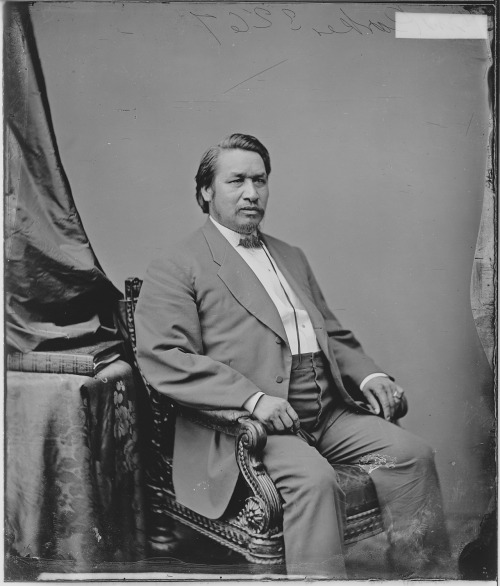Robert E. Lee’s
papers of surrender
were not penned
by a white man.
General Orders No. 9. The hand that penned them was that of a trained attorney, but one who could never sit before the bar, because he was not a U.S. citizen. Despite that, he rose to the level of lieutenant colonel under the command of his old friend,General Ulysses S. Grant, and earned a brevet as brigadier general following the War. In Grant’s staff, he was known for his fine handwriting and law knowledge. Those skills were put to task as he not only helped draft Lee’s letters of surrender, but personally penned the formal copies.
Lee mistook him for a black man, but apologized upon realizing his error, saying,
“I am glad to see one real American here.”
The man was Ely Parker, born Hasanoanda, a sachem (or high chief) of the Seneca nation. Parker replied to Lee, suggesting a tone of reconciliation,
“We are all Americans, sir.”
Following the war, Parker finished his time in the military and was later appointed Commissioner of Indian Affairs under Grant’s presidency, becoming the first Native American to hold the position.
>via: http://thecivilwarparlor.tumblr.com/post/31562240863/robert-e-lees-papers-of-...
